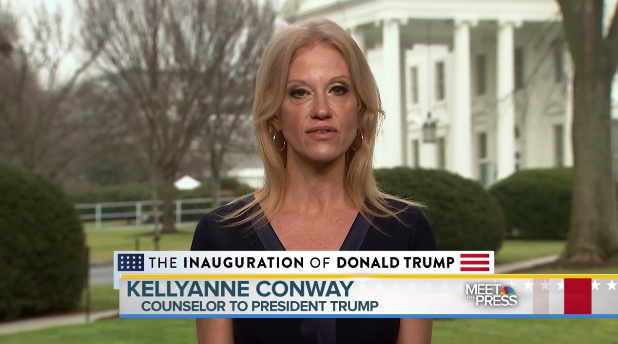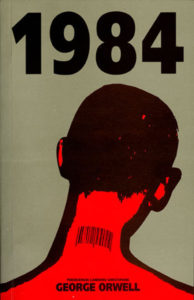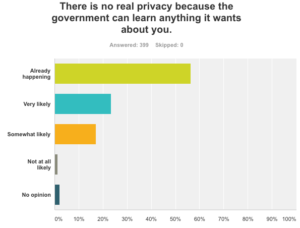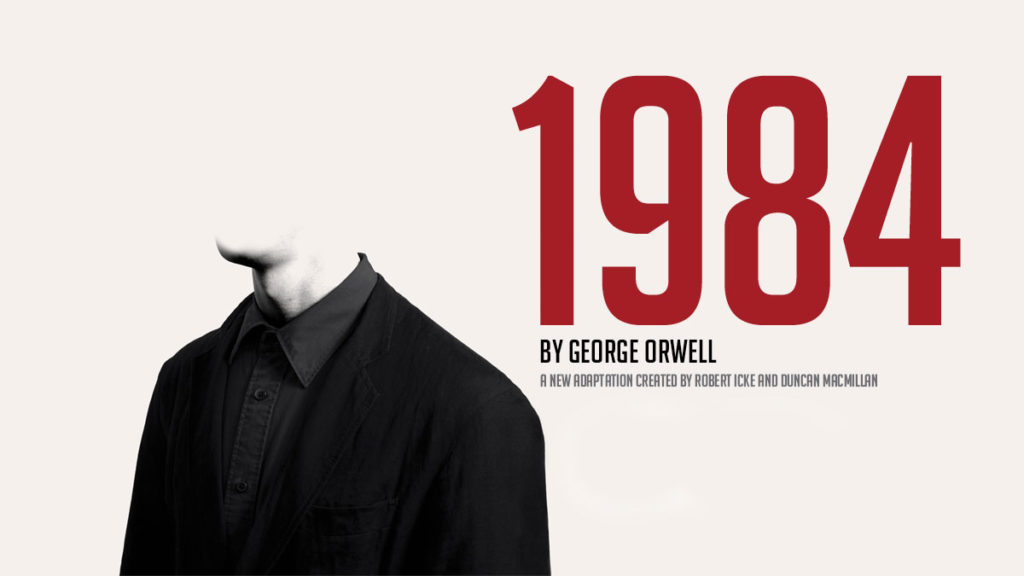Survey details collision in classrooms between literature and reality
By Bradley Wilson
CMR Managing Editor
Lynn Neary with National Public Radio said George Orwell’s 1949 novel, 1984, again topped the Amazon bestseller list and had become, in her words, something of a political barometer.
Neary reported, “A spokesman for Signet Classics, which currently publishes 1984, said sales have increased almost 10,000 percent since the inauguration and moved noticeably upwards on Sunday. That’s when Counselor to the President Kellyanne Conway appeared on Meet The Press. When host Chuck Todd challenged the Trump administration’s assertions about the size of the Inauguration Day crowd, Conway responded with a phrase that caught everyone’s attention.”
“Alternative facts,” Conway said.

Washington Post reporter Karen Tumulty on CNN’s Reliable Sources said the phrase reminded her of phrases from Orwell’s classic: doublethink, ignorance is strength, war is peace, freedom is slavery.
And New York Times reporter Kimiko de Freytas-Tamura discussed how Penguin Books had seen sales of the book rise not only in America but in Britain and Australia. In her Jan. 25 article, Freytas-Tamura talked with University of Cambridge Professor Stefan Collini who said readers see a natural parallel between the book and the way U.S. President Donald Trump and his staff have distorted facts.
“Everyone remembers  as containing various parodies of official distortions,” Collini said. “That kind of unreality that is propagated as reality is what people feel reminded of, and that’s why they keep coming back.”
as containing various parodies of official distortions,” Collini said. “That kind of unreality that is propagated as reality is what people feel reminded of, and that’s why they keep coming back.”
A couple weeks later, the book again made the pages of The New York Times in an article by Katherine Schulten who reminded readers that when the book came out, reviewers write it was “not impressive as a novel about particular human beings” but as a prophecy and a warning,” it was “superb.”
Signet ordered a new printing of 75,000 copies of 1984 to keep up with demand.

THE SURVEY
However, this wasn’t the first time the content of the book had been compared to happenings in modern society. In the fall of 1983, an in-depth Gallup Poll asked people various questions about the book and whether events portrayed in the book reflected the reality of the time. In 2017, attitudes just aren’t all that different especially among college students and college media advisers.
Four questions had polar opposite responses.
- In 1983, poll results showed that respondents believed that it was not at all likely that “anyone who criticizes the government is severely punished” — 66 percent. But in 2017, 52 percent said that was already happening.
- In 1983, 44 percent of respondents said, “The government says the only way we can have peace is by waging war.” But in 2017, 31 percent said that was already happening.
- In 1983, 51 percent said it was not at all likely that the government urges people to surrender freedom to gain great security. But 35 years later, 50 percent of college students and advisers said that was already happening. Of the 399 total respondents, 48 percent said that was already happening.
- And in 1983, when Ronald Reagan was in the third year of his first term as president, 72 percent of respondents said it was not at all likely that the country would be ruled by a dictator. But early in 2017 in the first month of Donald Trump’s presidency, 30 percent said that was already happening.
Overall, in 2017, significantly more than half — nearly 60 percent — of the nearly 400 respondents already believe that there is no real privacy and that the government uses false words and statistics to hide bad news about the economy and quality of life.
USING 1984 IN THE CLASSROOM
With the resurgence in dystopian literature, even instructors in introductory media courses and media literacy courses might consider using such literature to illustrate modern concepts in mass media.
- Advertising instructors can discuss the popularity of the Apple Computer Super Bowl commercial from 1984, one of the most popular commercials of all time.
- Editing and writing instructors can pull vocabulary and phrases from the novel and ask students to reflect on what they mean in today’s society. “Big Brother is watching you.” “War is peace. Freedom is slavery. Ignorance is strength.” “If you want a picture of the future, imagine a boot stamping on a human face—for ever.” “Doublethink means the power of holding two contradictory beliefs in one’s mind simultaneously, and accepting both of them.” “It’s a beautiful thing, the destruction of words.” “Freedom is the freedom to say that two plus two make four. If that is granted, all else follows.”
- Editorial writing instructors can find reviews of the book, the movie, the play or the Broadway production and compare them.
MORE RESOURCES
- Teaching Orwell and ‘1984’ With The Times
- Teaching Orwell and ’1984’ With The New York Times
- Sales of Orwell’s ‘1984’ spike after Kellyanne Conway’s ‘alternative facts’
SURVEY RESULTS
| Question | 1983 Gallup Poll | 2017 Survey |
| Have you read the book 1984 by George Orwell? Have you ever seen a movie or television version of George Orwell’s 1984? | 22% read book10% saw movie or television version | 89% read book31% saw movie or television version |
| There is no real privacy because the government can learn anything it wants about you. |
47% already happening 19% very likely 17% somewhat likely 9% not at all likely |
58% ALREADY HAPPENING 21% very likely 19% somewhat likely 1% not at all likely |
| Poor people think their only chance to get ahead in life is to win the lottery. |
20% already happening 16% very likely 25% somewhat likely 32% not at all likely |
22% already happening 23% very likely 35% SOMEWHAT LIKELY 4% not at all likely |
| The government urges citizens to hate people in other countries. |
9% already happening 6% very likely 17% somewhat likely 62% NOT AT ALL LIKELY |
52% already happening 10% very likely 22% somewhat likely 13% not at all likely |
|
Anyone who criticizes the government is severely punished.
|
4% already happening 6% very likely 18% somewhat likely 66% NOT AT ALL LIKELY |
13% already happening 17% very likely 42% somewhat likely 26% not at all likely |
| The government says the only way we can have peace is by waging war. |
13% already happening 14% very likely 24% somewhat likely 44% NOT AT ALL LIKELY |
31% already happening 24% very likely 28% somewhat likely 13% not at all likely |
| The government urges people to surrender freedom to gain great security. |
11% already happening 10% very likely 21% somewhat likely 51% NOT AT ALL LIKELY |
50% already happening 22% very likely 17% somewhat likely 8% not at all likely |
| People are asked to make great economic sacrifices but government officials themselves live in luxury. |
51% already happening 16% very likely 19% somewhat likely 10% not at all likely |
55% ALREADY HAPPENING 17% very likely 20% somewhat likely 5% not at all likely |
| The government uses false words and statistics to hide bad news about the economy and quality of life. |
40% already happening 17% very likely 23% somewhat likely 14% not at all likely |
58% ALREADY HAPPENING 18% very likely 21% somewhat likely 2% not at all likely |
| The country is ruled by a dictator. |
3% already happening 6% very likely 14% somewhat likely 72% NOT AT ALL LIKELY |
30% already happening 25% very likely 17% somewhat likely 24% not at all likely |
| The Feb. 5, 1984 Gallup Poll included interviews of random people in December of 1983. | An February, 2017, anecdotal poll of 172 college students and college media advisers online via SurveyMonkey. The poll is still open. |

